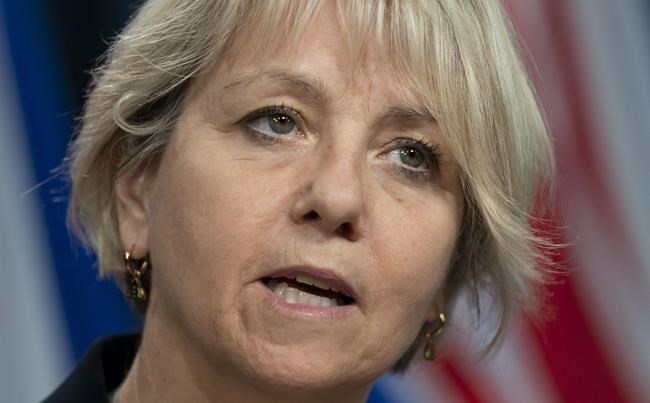VANCOUVER — The chief justice of the British Columbia Supreme Court says the provincial government is putting the court in an "impossible position" by asking for an injunction ordering three churches to stop in-person services before their challenge of public health orders is heard.
Chief Justice Christopher Hinkson said Friday health orders already prohibit such gatherings and it's within the power of provincial health officer Dr. Bonnie Henry and the government to escalate enforcement without a court order.¬Ý
"There are alternate remedies," Hinkson told Gareth Morley, legal counsel with the legal services branch of the Attorney General Ministry, during a hearing.¬Ý
"I shouldn't be doing Dr. Henry's job. If she wants police to have the ability to arrest people, the order can be amended, can't it?"
The court is "rather ill equipped" to second-guess health decisions by people who actually have the expertise to make them, Hinkson said.
The injunction request by the provincial health officer and attorney general comes after the churches filed a petition that challenges COVID-19 restrictions on in-person religious services, arguing the ban violates people's rights and freedoms.
The Riverside Calvary Chapel in Langley, the Immanuel Covenant Reformed Church in Abbotsford and Free Reformed Church of Chilliwack were among more than a dozen individuals or churches that filed the petition last month, with the challenge to be heard in March.¬Ý
They allege several charter violations including freedom of religion, belief, expression, peaceful assembly and association.¬Ý
Lawyer Paul Jaffe, who represents the churches, told the court his clients have adopted safety protocols similar to those approved by Henry in places like schools that remain open.
It doesn't make sense that some people should be allowed to gather to do yoga or to study history, but not talk about God, he said.¬Ý
"It's so arbitrary, it's so irrational. Viruses don't become activated because of the subject of discussion," Jaffe said.
The health orders allow exemptions for support groups for people challenged with grief, substance use and other conditions. Jaffe said churches play a similar role.
The churches applied for an exemption in December and have not received a response, he said.¬Ý
Jaffe described the application for an injunction as a "punitive" and "vindictive" move, when the court hearing is less than three weeks away.
However, Morley said existing restrictions on worshippers aren't working without compliance and a court order could add weight and protect the public.¬Ý
There is "no question" that there is an ongoing risk to public health of gatherings in the coming weeks, he said.
"They have every right to challenge the public health orders, but they do not have a right not to abide by them in the meantime."
It's not right to compare restrictions on churches with other venues, he said. The orders are consistent if you consider that both secular and religious schools have the same restrictions, and both secular and religious ceremonies like weddings and funerals do, too.¬Ý
"Secular oranges are different from religious apples," he said.¬Ý
On Friday, Henry told a news conference that churches were open in summer and fall with safety measures in place, but as the pandemic worsened, so did transmission in faith settings.¬Ý
The nature of interactions in churches is "fundamentally different" than the transactional ones in stores and restaurants, and there are more older and vulnerable churchgoers than other demographics, Henry said.
Churches will be reopened as a soon as it's safer to do so, she said.¬Ý
Hinkson asked Morley what the government planned to do if it were granted a court injunction against the churches. He noted a recent case where an injunction against protesters was given to the Vancouver Port Authority, but the public prosecution service declined to enforce the order, saying it wasn't in the public interest to charge the protesters.
"You understand my concern is the reputation of the administration of justice," Hinkson said.
"If we're being asked to do these things and then we're told it's not in the public interest to enforce our orders, I won't grant orders," the judge said.¬Ý
Applicants for court injunctions are typically non-governmental organizations or companies that don't have any other option. Governments do, he said.¬Ý
Morley said the attorney general's office cannot tell police or the prosecution service how to exercise their discretion, but he assured the judge that his ruling would be taken "very, very seriously."¬Ý
"Every participant in the judicial system is concerned about the rule of law and the public health interests at stake here, and will exercise your discretion appropriately," Morley said.¬Ý
Hinkson said he will deliver a decision Wednesday, adding he does not condone breaching orders.¬Ý
This report by The Canadian Press was first published Feb. 12, 2021.
Amy Smart, The Canadian Press
Note to readers: This is a corrected story. A previous version said Gareth Morley is a Crown prosecutor.




